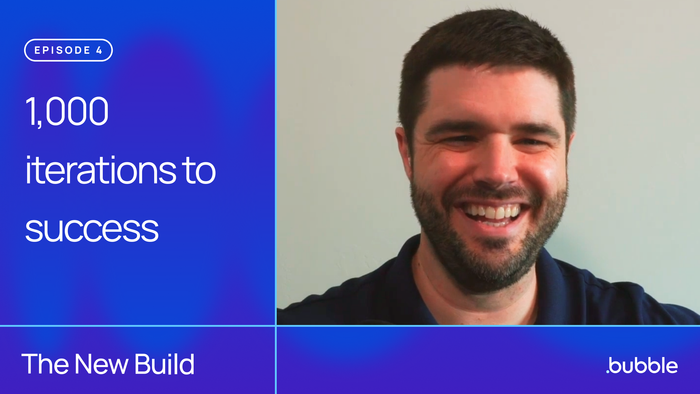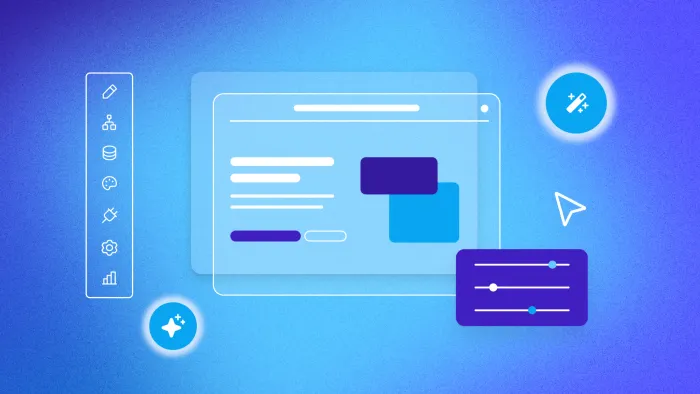To those in the industry, programming has long been considered an art form. And it is, of course; building software takes skill and planning and creativity. Plus, there’s nothing quite like the feeling of creating something awesome (and functional!) with nothing but your mouse and keyboard.
But there’s a steadily growing group of programmers who reject the notion that writing code is the be-all and end-all. They’re embracing a new mindset — one that prioritizes outcomes over inputs.
These are no-code people, and they’re changing the game.
The dwindling craft of writing code
For decades, traditional programming culture has placed a lot of value on the experience of writing code. Coders have taken pride in their willingness to learn the obscure ins and outs, the perseverance required to puzzle through stubborn bugs late into the night, and the expertise they gained along the way.
But that’s changing. In a recent essay for The New Yorker, coder and writer James Somers talks about how more and more of his colleagues are moving away from the craft of code and toward a greater focus on just getting the job done. They forgo the hours and days it would take to learn a new skill or “tinker” with a problem and turn instead to tools like AI chatbots to just tell them what to do.
And it’s not just AI. New tools built by developers for developers emerge every day, promising to do the complicated parts so that coders don’t have to do as much coding.
“Bodies of knowledge and skills that have traditionally taken lifetimes to master are being swallowed at a gulp,” Somers writes. “Coding has always felt to me like an endlessly deep and rich domain. Now I find myself wanting to write a eulogy for it. What will become of this thing I’ve given so much of my life to?”
Sure, early programmers waded admirably through the trenches, and swapping stories with others who’d been there may have been fun. But the fact of the matter is that today, there’s a better way.
Do you want to write code, or do you want to build a business?
We’ve long believed that the days of programmers speaking computers’ language, instead of the other way around, were numbered.
And today, there’s a whole movement of programmers who have discovered the power, speed, and flexibility of no-code tools like Bubble — people who are rejecting the old way of doing things in favor of getting where they intend to go faster.
As Andrew Agostini, founder of Bubble-built Scious and a former traditional coder, told us recently, “I don’t want to write code. I want to build a business.”
It makes sense. After all, not everyone who wants to make an amazing sandwich feels the need to bake the bread. Sure, the bread is important, but does it have to be homemade? Or could buying the bread from a great baker be just as good? You need high-quality ingredients (and the skill to combine them), but you don’t have to make them all yourself. It’s the sandwich itself that matters in the end.
In the same way, if your end goal is to build a company or tool that makes a big impact on people’s lives, why wouldn’t you choose to build it in a fraction of the time and at a fraction of the cost on a robust, scalable platform like Bubble?
Take it from Andrew, who says, “[When you’re building a company,] speed of learning and speed of iterating on ideas is super important. And I’m considerably faster — I would say exceptionally faster — than my peers in developing applications.”
Or from Carmen Perez, Techstars alum and founder and CEO of Much, who taught herself to code before giving it all up for Bubble: “The reason why we’re coding is to make people’s lives easier, and Bubble makes developers’ lives 1,000% easier. You have to hang up the ego. Who wants to write thousands of lines of code?”
We have a name for programmers like Andrew and Carmen, whose motivation and satisfaction comes from the outcome of the time they spend programming.
We are no-code people
Twilio founder Jeff Lawson once coined the term “software people” to describe those who know that the future of technology lies in a focus on flexibility, iteration, and solutions built to resist obsolescence. We couldn’t agree more.
We’re dubbing Bubblers, who put outcomes over inputs, “no-code people.”
Because competitive advantage doesn’t care about the craft of code. Neither does changing the world. The only people who care about the craft of code are the coders hanging on to an older school of thought.
That’s fine, but that’s not us — and it’s not the millions of Bubble founders who break barriers every day.
We are no-code people, and our time is now.
Build for as long as you want on the Free plan. Only upgrade when you're ready to launch.
Join Bubble




